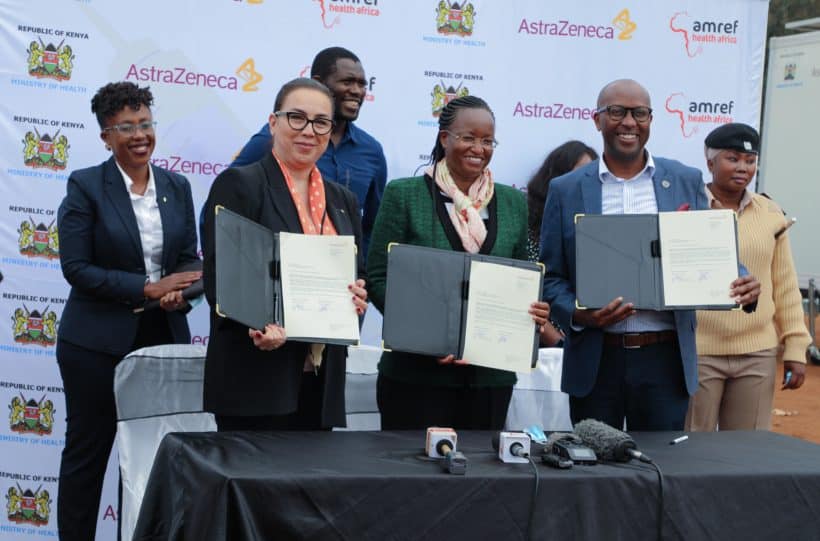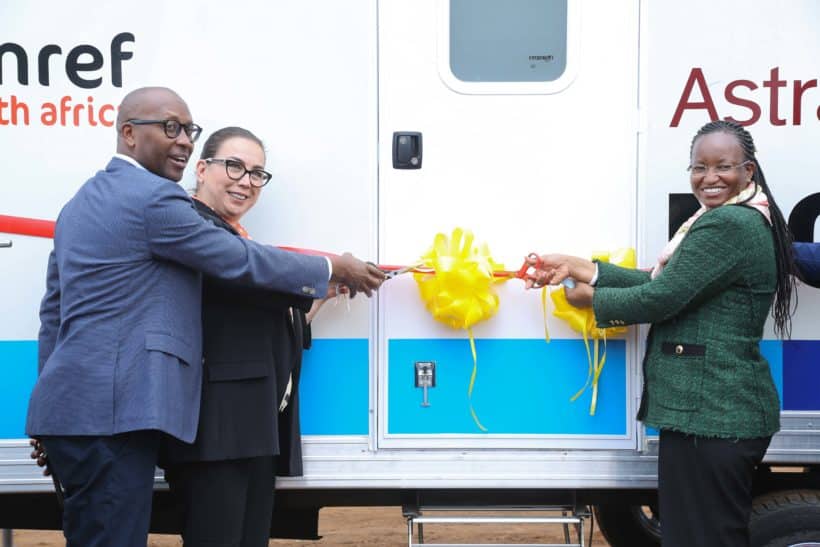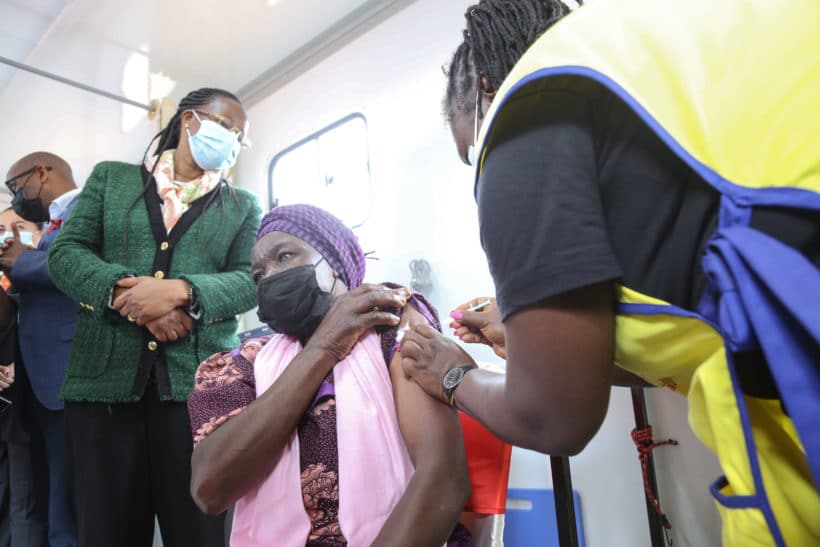
At the end of June, a fleet of solar-powered mobile vaccination clinics began work in one of Africa’s largest informal settlements, the Kibera community in Nairobi, as part of efforts to protect more Kenyans against the coronavirus and curtail the pandemic.
In coordination with the Kenyan Ministry of Health, the mobile clinics are being deployed by Amref across Kenya, targeting ‘last mile’ communities where they live and work.
Each clinic aims to vaccinate up to 100 people per day — with a total target of 1000 daily vaccinations once all clinics are operational — while also providing health information, COVID-19 screening and post-immunisation care. In order to tackle misinformation around vaccination, health workers will seek to build trust among communities and demonstrate the safety and efficacy of COVID-19 vaccines.

AstraZeneca is supporting this initiative because we understand that the cost of medicines, though important, is not the only barrier to healthcare.
We have been providing COVID-19 vaccines at cost to low and middle-income countries through COVAX since they first became available. But more than a year since the first supplies landed in Ghana, only 19 per cent of Africans have received their first course of a COVID-19 vaccine, according to the Africa CDC.
If we are ever to see an end to this pandemic — an end to the emergence of new variants that threaten countries rich and poor — we need those numbers to increase, and fast.
We are fortunate that we have the tools needed to protect people against COVID-19 but the challenge we now face is making them accessible to communities on the ground.
“This crisis is not over yet, and it is up to all of us to maintain that sense of urgency and innovation to reach ‘last mile’ communities. Only then can we hope to end the pandemic for all.” – Pelin Incesu, AstraZeneca’s area vice president for the Middle East and Africa
Achieving this requires working together across the private, public and third sectors to pursue a patient-centred approach to accelerating vaccination.
That is why we are taking our vaccines to the heart of communities that would otherwise find it difficult to access health services, including COVID-19 vaccination, either due to limited health facilities in their areas or an inability to travel the distances required to access the care they need.
The health workers I met in Kibera were armed with training and educational tools to address questions from community members and to deliver health services with empathy, driven by an understanding of the contexts in which they operate.

Working with governments and civil society across Africa, AstraZeneca hopes to continue to contribute to the development of sustainable solutions to the region’s health challenges, both during and after the pandemic.
In a post-pandemic world, the mobile clinics can be used to support other health priorities, such as tackling the rising burden of non-communicable diseases, including cancer and diabetes.
The unprecedented speed and scale at which vaccines and other tools to fight COVID-19 were developed when the virus first started to spread has undoubtedly saved millions of lives worldwide. However, this crisis is not over yet, and it is up to all of us to maintain that sense of urgency and innovation to reach ‘last mile’ communities. Only then can we hope to end the pandemic for all.

